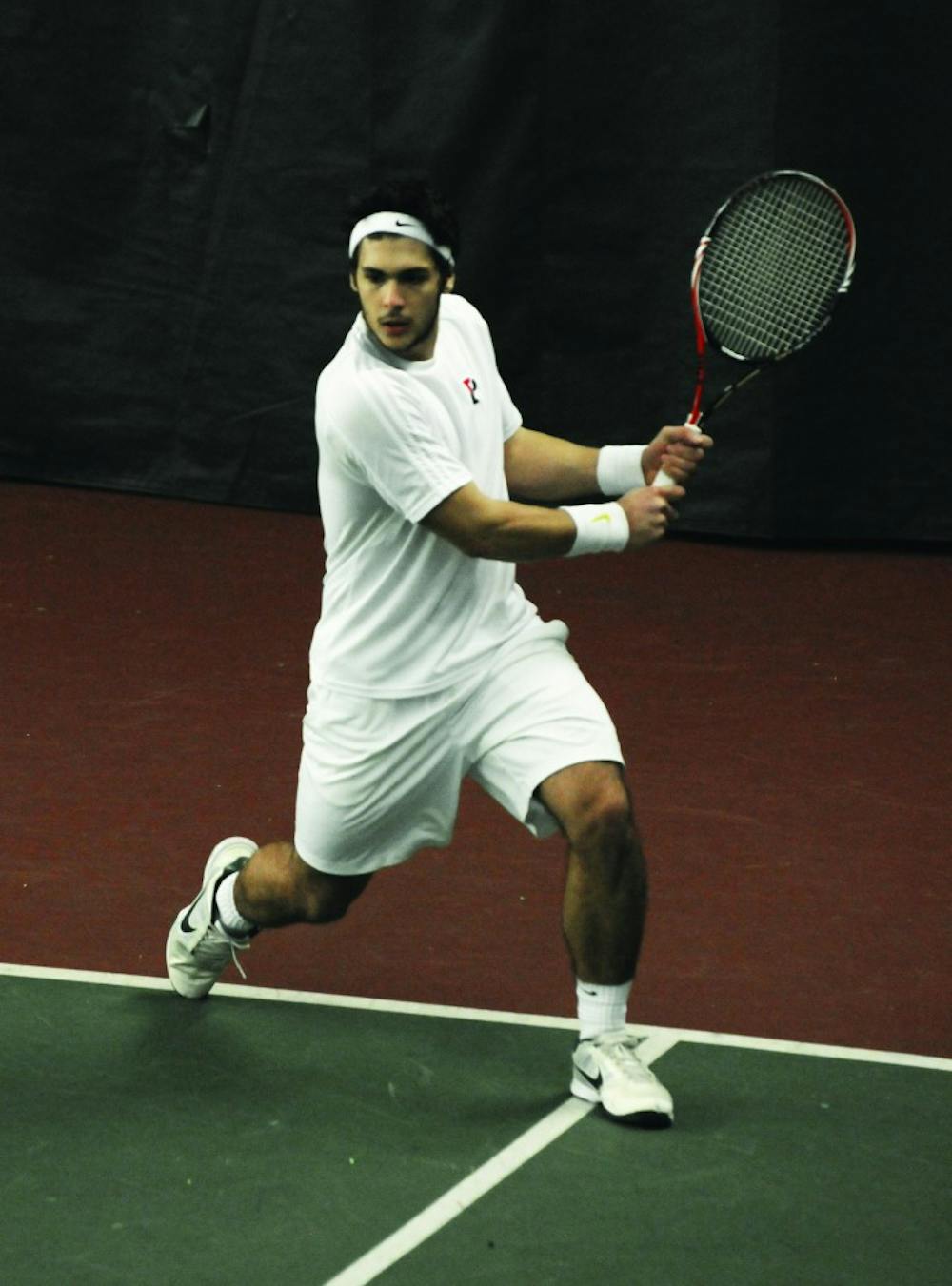
Before the tennis season began, head coach David Geatz had a prediction for Senior Associate Director of Athletics Tony Vecchione.
“There’s no way we’re not going to be a top-40 team this year,” Geatz told him.
Then the injuries started piling up.
Junior Ismael Lahlou — Penn’s No. 3 player last year — was sidelined for the year after back surgery. Freshman Stuart Little , who Geatz predicted would fill a doubles spot, had knee surgery which put him out of commission for the season as well.
Sophomore Blaine Willenborg — who made a shaky comeback against St. John’s and returned for an ostensibly more permanent time against Yale this past weekend — has been out for two to three months with a broken finger.
“I think Blaine would have played at the top of our lineup too if he wouldn’t have been out for his broken finger,” Geatz said.
And as he came off the bench, freshman Marshall Sharp sat down in his stead, thanks to a hip flexor. Other singles players have missed playing time here and there for other short-term ailments as well.
So much for top 40. Penn would be lucky to crack the top 75 anytime soon.
“I’ve never seen so many guys hurt in my life for tennis,” Geatz said.
It’s hard to judge the precise effect that the Quakers’ misfortunes have had on their success this year. On the one hand, every single one of Penn’s losses could have been reversed with two more points, whether that would have meant picking up the doubles point or having a stronger singles lineup at each positional rank.
Of course, the Quakers wouldn’t have won all those matches, but Geatz isn’t crazy to think the disabled list has had some tangible effects.
Take Penn’s loss to Yale this weekend, the only blemish on their Ivy season thus far. The Quakers dropped a stunningly close doubles point — reversing either of their 8-7 doubles losses would have given them the point — and two singles matches went to three sets. That’s the type of loss that a non-patchwork lineup helps solve.
“I thought that was a winnable match anyway, and I thought we’d win,” Geatz said. “And I thought the doubles point just got away from us.”
On the other hand, from a bystander’s perspective, it doesn’t necessarily appear that injuries have hurt the Quakers all that much.
Penn sports a winning Ivy record for the first time since 2008 — a record that includes a much-sought after victory over No. 56 Princeton. In fact, this time last year, the Red and Blue were winless in Ivy play, having dropped matches to Princeton, Brown and Yale.
And while Geatz points out that a fluctuating lineup takes a toll on everyone as no one can prepare for a specific opponent, neither can Penn’s rivals.
All that suggests the Quakers have something to look forward to next year. Sure, they’ll lose two top-four players in seniors Nikola Kocovic and Zach Katz, but — assuming Lahlou makes it back from surgery — they’ll get a proven one back, as well as essentially one and a half recruiting classes.
“I expect us to be really good next year,” Geatz said.
In the meantime, the shorthanded Red and Blue can try to do what they haven’t done since 2007: finish the season with a winning Ivy record.
Because as much as Geatz has bemoaned ill luck this season and as much as he can’t wait for a full-strength squad next year, he won’t stop reminding us, “This year ain’t over yet either.”
The Daily Pennsylvanian is an independent, student-run newspaper. Please consider making a donation to support the coverage that shapes the University. Your generosity ensures a future of strong journalism at Penn.
DonatePlease note All comments are eligible for publication in The Daily Pennsylvanian.





